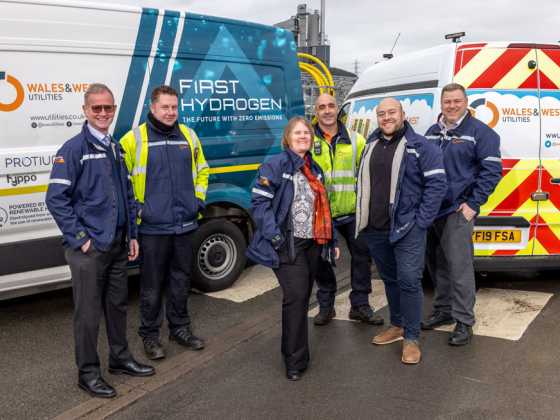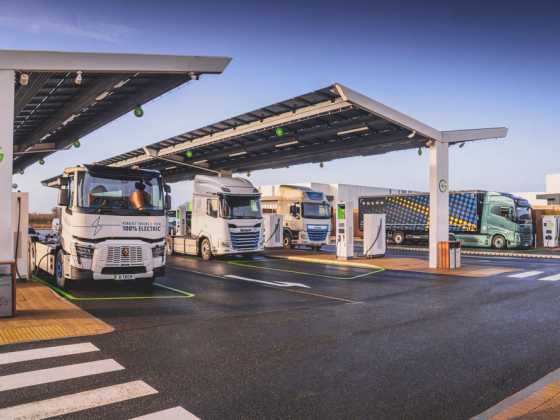Accelerating the availability of greener transport
The Energy Technologies Institute has been tasked with finding the most sustainable, secure and affordable way to seamlessly integrate green vehicles into the UK
 Written by Dr David Clarke, CEO, the Energy Technologies Institute.
Written by Dr David Clarke, CEO, the Energy Technologies Institute.
According to the Department of Energy and Climate Change, light duty vehicles account for 16.5 per cent of total UK CO2 emissions.
Within transport, they account for more than half of emissions, with heavy duty vehicles accounting for around a quarter and international aviation and shipping accounting for the remainder.
The automotive and energy industries are responding to this challenge by developing a range of low-carbon vehicle and energy technologies.
A GROWING TREND
There is growing activity in the UK around electric and plug-in hybrid electric vehicles. Some carmakers, such as Renault and Nissan, are pinning their hopes on battery electric vehicles (BEVs). Others, such as Toyota and General Motors, are looking to plug-in hybrid electric vehicles (PHEVs) which have none of the range limitations imposed by the battery capacity of a BEV.
PHEVs can be powered by electricity from the grid or through traditional petrol/diesel fuel. These manufacturing giants are all planning on launching new models over the next few years.
The UK Government is playing its part in kick-starting the take up of these vehicles. In January, it outlined its support to encourage early adoption of these new vehicle types. It wants councils to promote the installation of recharging points in new developments, without making developments unaffordable. And as part of this, Ministers have announced their intention to allow recharging points to be built on streets and in outdoor car parks without the need for planning permission.
GETTING THE RIGHT INFRASTRUCTURE
The government is investing in the installation of a new network of up to 4,000 recharging points in streets, car parks and commercial retail and leisure facilities through its Plugged in Places scheme.
Consortia based in the Midlands, Greater Manchester, East of England, Scotland, Northern Ireland, London, Milton Keynes and the North East have successfully bid for funding through the Department for Transport initiative, which is being delivered through the Office for Low Emission Vehicles (OLEV). The scheme will support the early adopters of these new vehicle types by providing a mix of innovative technologies, operating models, incentives and marketing strategies. It will inform future development and deployment efforts.
Early 2011 also saw OLEV provide its first incentive grants to consumers of up to £5,000 to buy ultra-low carbon cars. The first nine cars to become eligible for these car grants are the Mitsubishi iMiEV, the Smart fortwo electric drive, the Peugeot iON, the Citroen CZero, the Nissan Leaf, the Tata Vista EV, the Toyota Prius Plug-in, the Vauxhall Ampera and the Chevrolet Volt.
One initiative familiar to fleets will be the Technology Strategy Board’s (TSB) £25 million Ultra Low Carbon Vehicle Demonstrator, which is currently putting hundreds of vehicles, the vast majority of them fleet vehicles, on the road. The majority of the vehicles are BEVs, however, there are also a small number of PHEVs too.
LOW CARBON PROJECTS
Set against this backdrop, the Energy Technologies Institute (ETI) began its £4.5 million investment in a set of projects to find the most cost effective route to achieving a sustainable, secure and affordable UK deployment.
The ETI is a public private partnership tasked with developing mass scale technologies that will help the UK meet its 2020 and 2050 energy targets. As Michael Hurwitz, director of OLEV said at the time: “The results of this research will provide important information that will help in our combined attempts to pave the way to a mass market for ultra-low carbon vehicles.”
The three projects, which are due for completion later this year, are being delivered by world-class consortia including industry, academic and consultancy expertise. The ETI projects are being led by ARUP, IBM and Ricardo UK Ltd, in collaboration with the Institute for Transport Studies at the University of Leeds, E.ON Engineering, EDF Energy, Imperial Consultants, Transport Research Limited Ltd, Shell, the University of Aberdeen, the University of Sussex, Element Energy and UK Power Networks.
The ETI is currently looking at consumer reactions and behaviours in buying and using plug-in vehicles and the supporting infrastructure; electricity distribution networks and recharging infrastructure requirements; and the economics and carbon benefits of the mass roll-out of these new vehicle types.
Dr Jillian Anable, senior lecturer at the University of Aberdeen’s Centre for Transport Research says: “Building a profile of the types of people who are likely to be the early adopters and the mainstream consumers will be a crucial step in the successful roll out of plug-in vehicles and the associated infrastructure.”
Jenny Stannard, project manager at TRL, said: “The work is crucially important to underpin the design of tailored consumer education interventions and incentives that will pave the way to mass market adoption of plug-in electric vehicles and their associated infrastructure.“
Peter Young, director of the Advanced Technology and Research Group at Arup, added: “Our work is pulling together research and modelling on consumer behaviour, vehicle technology, and infrastructure intelligence to assess the long term implications of plug-in vehicles for the UK economy.
One of the aspects of the work I have been most involved in helps us to better understand how the drivers might own and operate vehicles in the future. This is particularly interesting because I personally expect to see a shift away from the purchase of vehicles, to more flexible business models involving the sharing of vehicles, car clubs and more private leasing of vehicles.”
MOVING FORWARD
Looking to the future, Giles Bridger of IBM Global Business Services believes that: “The momentum behind plug-in vehicles is growing fast. There is increasing acceptance that plug-in vehicles will play a significant role in CO2 reduction, in line with government and EU carbon commitments, leading to projections of a million vehicles on the road in the foreseeable future.
“IBM believes that consumers’ willingness to switch to plug-in vehicles will be significantly influenced by the emergence of smart networks - i.e. an intelligent and interconnected recharging infrastructure. That infrastructure will make the operation of these vehicles easier to use, allowing simple recharging in private and public places through an open business model that encourages private investment, and mitigating the driving range restrictions that we can see today.”
Findings from the ETI project will be available later in the year. If you are interested in finding out more when they are available, contact the ETI’s transport programme by emailing transport@eti.co.uk.
FOR MORE INFORMATION
Web: www.eti.co.uk
ABOUT THE AUTHOR
Dr David Clarke is a fourth generation engineer. His great grandfather was a canal boat builder, his grandfather worked on Rolls-Royce car engines and father worked on Rolls-Royce aircraft engines.
He joined the Energy Technologies Institute as Chief Executive Officer in January 2008 from his previous role as Head of Technology Strategy at Rolls-Royce plc. David has been involved in collaborative research and development of advanced technologies for over 20 years, leading a range of research groups including Rolls-Royce’s Advanced Materials development activities and its corporate Strategic Research Centre.
With the latter group he led Rolls-Royce’s global research strategy and the development of new technology opportunities in fields as diverse as fuel cells, electrical propulsion technologies and advanced computational diagnostics.
David is a member of the EPSRC Council and is a member of the North West Science Council. David graduated from the University of Surrey in Materials Technology and with a PhD in Composite Materials. He is a Fellow of the Institute of Materials and of the Energy Institute and a Chartered Engineer.
ABOUT THE ENERGY TECHNOLOGIES INSTITUTE
The Energy Technologies Institute is a UK-based private company formed from global industries and the UK Government. The ETI brings together projects and partnerships that create affordable, reliable, clean energy for heat, power, transport and the supporting infrastructure. The Energy Technologies Institute aims to develop projects that develop and demonstrate affordable, reliable, clean energy for heat, power, transport and the supporting infrastructure. This will accelerate the reduction of greenhouse gas emissions by increasing commercial investor confidence in deployment of a range of low carbon solutions. This will also increase the security of energy supplies.






